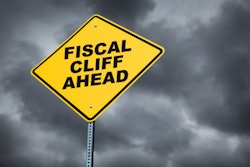Do you believe what they are doing in DC? All that yelling and screaming and “sky is falling” rhetoric over the so-called fiscal cliff and what did they accomplish? Basically nothing.
Even though the results were lacking, what they did do was reinstate or leave intact a lot of tax benefits that even I didn’t expect. One of the first articles I reviewed on the tax changes has a list of what was left in place and it filled up a full page of small print.
The results are both positive and negative. Reinstatement of the full Social Security tax will cost just about every employee $1,000 per year. (And they said they wouldn’t tax the middle class!) As you can tell, this is the negative.
On the positive side, Congress extended the Section 179 expense write-off at $500,000 for both 2012 and 2013. Let me repeat, you now have a $500,000 179 limit for 2012 that you didn’t have before.
Make sure you review your tax position for 2012 to determine if you can make use of this $500,000 present from the IRS. Remember that the 179 deduction covers both new and used fixed asset purchases. So, if you purchased fixed assets totaling less than $2 million, you get to write off 100% of the cost up to the $500,000 limit.
It makes the most sense to apply used equipment purchases to the 179 deduction and then new if you have any room left. Purchases of fixed assets in excess of $2 million offset the $500,000 deduction dollar for dollar for every dollar of purchases over $2 million.
Another surprise is the extension of the 50% Bonus Depreciation (new equipment only) for 2013. New equipment purchases not used as part of the 179 deduction can apply the 50% bonus, which gives you a 60% depreciation deduction after all the calculations are made.
All of this tax stuff sounds fairly simple, but it’s not. You need to apply what you can to reduce your tax bill, but there will be circumstances when using these tax regulations may not be warranted.
When discussing your 2012 tax situation, as well as the planning for 2013, make sure you ask if taking these deductions makes sense for you. Contractors have a unique set of tax situations to deal with and should (if they can) work with tax professionals who understand their business.
Benefits of Dealer Rentals
On another note, I recently returned from the Associated Equipment Distributors annual convention, where a major topic of conversation was how rental transactions are increasing in terms of equipment utilization. Almost every dealer I consulted said that rental has become a bigger part of their business.
One speaker at the convention reported that 51% of all construction equipment manufactured in 2012 was delivered to rental companies. Even though dealers are selling some equipment, there is a backlog in many cases because of orders from rental companies. If you don’t already have what you need for this season on order, you may not get delivery until fall.
Contractors are still cautious, have trouble getting financing and, I believe, are figuring out that rental is the better and cheaper way to go in a lot of cases. As a result, equipment dealers are transitioning to provide rental services to their customers.
There are many benefits to having dealers get into rental. They have new units; rent-to-sell programs that allow contractors to try out a product before they buy; and the parts and service personnel to fix rental units needing repairs. And when the economy gets better, they will have low-hour rental units to sell you if you choose to get back into the equipment business.
There was a cautionary tone to the convention. Certain parts of the country are doing well while others are still stuck in the recession. When you add in the national debt situation, unemployment, the potential inflation and increased interest rates, it’s really hard to say where we stand as an economy — especially the construction economy. So keep it close to the vest folks, because caution is still necessary at this point in time.




















